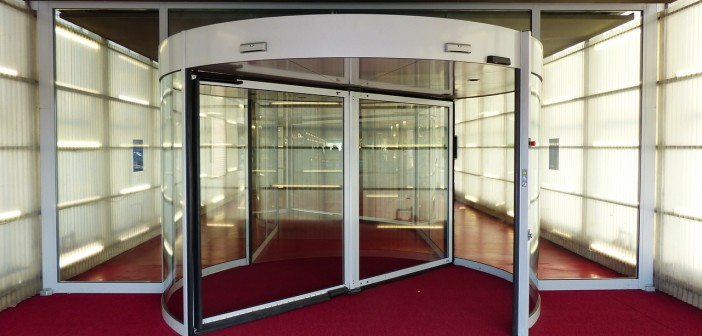Jim Somerville draws from his experience teaching at a college to find a helpful approach to the coming and going of church members.
Many communities are becoming very transient places; people are coming and going all the time. That may be good for the housing market, but it is hard on the church. Often, just as you are getting to know and love that nice young couple who joined the church, they tell you they are leaving. And that can really break a pastor’s heart. It is gratifying to have new members joining, but it is hard to build community when there is a “revolving door” on the church.
So what can we do? How can we learn to celebrate transience? Looking around for good models, the best I can find is the model of the college or university. I used to serve a church practically on the campus of Wingate University in North Carolina. While doing some adjunct teaching there, I talked with the professors and asked them how they managed in a place where people were always coming and going. What they said, essentially, was this:
Some people stay. Even on a university campus there are some constants. There are members of the faculty and staff who have been around for a long, long time. Those people provide a sense of community even when students are coming and going. They make the place familiar. The same could be said for our churches. There are people in every congregation who are as much a part of the church as the building itself. Seeing them in the pews and in the hallways makes us feel at home. I thank God for those people.
Some people don’t stay. The students on a college or university campus are usually there for no more than four years. Professors know that when they welcome them to their first class. Their job is to give them the best education they can in those four years so that they will be ready to go out into the world and make the institution proud. What if we in the church recognized that many of our members will be with us for only a few years and did all we could in that time to teach them well? Hopefully, when they leave us they will go out into the world as “ambassadors” of some sort, taking with them what they have learned from us. It does not mean that their “graduation” will not be bittersweet, but at least it will not be only bitter.
Both kinds matter. Colleges and universities often refer to current students and alumni. The current students are the ones who are there on campus, the ones who are going to classes and eating in the cafeteria. The alumni are those former students who have gone out into the world to make the institution proud. Any college or university president would tell you that both groups matter: you cannot support an institution without an active alumni organization, but without an active student body you would not need to.
One of the things that might help us learn to celebrate transience is to recognize that just because people move to some other place does not mean they cannot still be actively involved in supporting, encouraging, and praying for the work of the church. We need to make sure we find good ways of staying in touch with our “alumni,” sharing our good news with them, and inviting them back for whatever “homecoming” events we might have. At the same time we want to take good care of our “current students,” because it is while they are here—for however long they are — that they come to love and appreciate the church and its ministries. So…
A word to your “alumni:” Encourage them to support and pray for the work of your church. Invite them to send money and stay in touch.
A word to your “faculty and staff:” Encourage your standard bearers to keep doing all they can to make your church feel like home to those who pass through its doors. Get to know the names of those “new students.” Make them feel welcome. Instill in them a love for your church and its traditions.
A word to your “current students:” Encourage your newcomers to dive in deep and immerse themselves in the life and ministry of your church while they are with you. Invite them to join, and give, and serve. Who knows? They may be one of those people who comes to town for a few years and ends up staying forever.
Let us learn to celebrate our transience, but, more importantly, let us remember that no matter how much we come or go we can celebrate “Jesus Christ, who is the same yesterday, today, and forever.” (Heb. 13:8)
Related Resources
- Keeping Campus Ministry Graduates Connected to Church Jan Rivero
- The New Welcome Video Tool Kit
- Leading Ideas To Reach Young Adults Ebook






